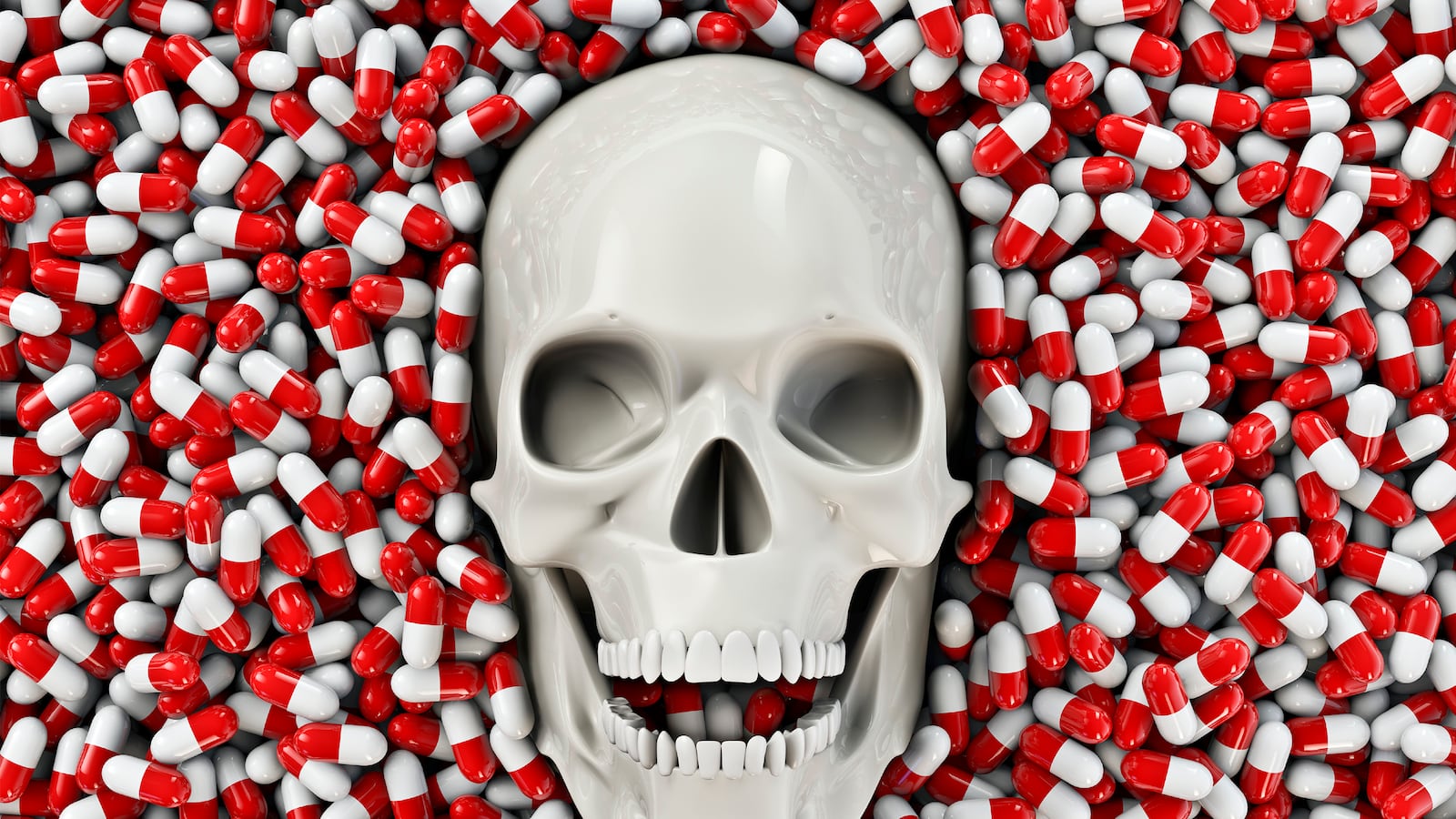In a now-viral video, New Jersey Governor and Republican presidential candidate Chris Christie made a heartfelt plea to Americans about our treatment of people with drug addiction. “We have to stop judging,” he said. “And start giving them the tools they need to get better.”
The video is increasingly relevant with the release of the Drug Enforcement Administration’s 2015 National Drug Threat Assessment (NDTA), which found drug overdoses have surpassed firearm- and car-related deaths every year since 2008. These numbers make it the leading cause of injury-related death in America, killing more than 46,000 people in 2013 alone.
“Sadly this report confirms what we’ve known for some time: drug abuse is ending too many lives too soon and destroying families and communities,” acting DEA Administrator Chuck Rosenberg said in a statement. “We must reach young people at an even earlier age and teach them about its many dangers and horrors.”
Rosenberg’s statement falls in line with the DEA’s zero tolerance view on drugs, which focuses more on anti-drug education than treatment. Many—including drug policy experts—have argued that statements like that one are problematic, suggesting that those who use illicit drugs deserve what’s coming to them.
Christie reacted similarly by using an example of his mother, who was diagnosed with lung cancer at 71. Her disease, the direct result of her use of tobacco, was treated as a tragedy; medical problems that heroin and opioid abusers get, he said, are treated like a punishment.
“We know the lung cancer was caused by the smoking,” Christie said of his mom’s diagnosis. While she tried “everything” she could to quit, she was unable to—something he said she, rightfully, wasn’t penalized for. “No one came to me and said, ‘Hey, listen, your mother was dumb. She started smoking when she was 16. She’s getting what she deserves’…No one said that.”
Christie argued that heroin and opioid abusers, who have tripled in the past three years, should be given the same sympathy—but aren’t. “Somehow, if it’s heroin or cocaine or alcohol we say…‘Well, they decided. They’re getting what they deserved,’” he said. Those who are pro-life, he argued, should be pro-life all the way, even when people make bad decisions. “The 16-year-old teenage girl on the floor of the county lockup, addicted to heroin, I’m pro-life for her too.”
According to the DEA’s report, America’s current treatment of heroin and opioid addicts isn’t working. An estimated 120 people die each day as the result of drug overdose deaths, most of which are the result of heroin or opioid use. Over 16,000 people died in 2013, the most recent year for which there is data of an overdose from opioids. That’s more deaths than cocaine and heroin overdoses combined. The number remains high despite a slight decrease in the use of opioids, which the study found to directly correlate with an increase in heroin use (a cheaper, often easier to acquire option).
Heroin overdoses will continue to be a growing problem in the U.S., with DEA chief Rosenberg stating that the levels of opioid and heroin overdoses have reached “epidemic levels.” Part of the growing problem with heroin appears to be the increasing availability of the drug, with heroin seizures in the U.S. doubling since 2010.
Besides the wide availability, the drug can sell for as low as $3 on the black market, a far lower number than the $30-$60 per pill that’s charged for painkillers. The NDTA found the majority of these drugs—as well as cocaine, methamphetamine, and marijuana—to be supplied by Mexican cartels.
At the end of Christie’s speech, he zeroed in on the personal story of a good friend from law school who became addicted to opioids after suffering a back injury. Christie detailed how the spiral into addiction ruined every aspect of his friend’s life, causing him to lose his marriage, his law license, his ability to see his three daughters, and his home.
After a decade-long battle to fight the addiction, including many stays in rehab, his friend died of an overdose at age 52. Christie said his story speaks to the universality of addiction, and the need for treatments rather than penalties. “It can happen to anyone,” he said. “So we need to start treating people in this country, and not jailing them…because every life is precious.”






